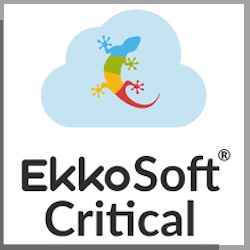The Nordic region is well-positioned to play a leading role in the fight against climate change, potentially creating a Nordic Silicon Valley of sustainability. However, Nordic countries (Denmark, Finland, Norway, and Sweden) have been slower in developing and scaling large businesses than other global players. Only 35 percent of the most valuable Nordic companies were founded in the past 50 years, compared with 50 percent in the United States, according to Ibid. The global sustainability agenda and the vast opportunities it offers could change that—the Nordics have much to gain by intensifying their efforts on both growth and sustainability. Recent McKinsey research indicates that a sharper focus on sustainability could create nearly 1 million new jobs and expand gross domestic product by as much as €130 billion in the Nordics. Finland alone could gain 200,000 jobs and increase GDP by €24 billion.
Focusing on hyperscaling green technologies offers the Nordics, and especially Finland, an opportunity not to be missed. This was the focus of McKinsey’s Green Business Building event, held January 25 in Helsinki, which brought together 40 key players from the green space, including corporates, start-ups, scale-ups, investors, and academia. The urgency of the need to hyperscale stems from the fact that without swift action, humanity risks falling far short of the 1.5°C global warming pathway, a crucial milestone in combating climate change.
Participants highlighted Finland’s unique advantages in building businesses. The country has a stable and well-functioning society, supported by a highly skilled and educated workforce that includes engineers, designers, and problem-solvers, making it well-equipped to develop climate transition solutions and green businesses. Furthermore, Finland’s thriving start-up ecosystem, supported by an innovative culture and entrepreneur-friendly environment, enables rapid scaling of green businesses.
The power of partnerships
Participants highlighted the significance of collaboration and partnerships at the event, which sought to connect businesses of all sizes. Speakers noted that start-ups and corporates can achieve necessary speed by forming partnerships in the value chain to share resources and manage risks. This kind of collaboration can allow start-ups to leverage the platform and resources of corporations while corporations can access new technologies and innovative approaches.
The speakers also stressed the importance of setting global ambitions early on and keeping up with developments in the relevant industrial ecosystems outside of Finland for each player aiming to scale. For example, in 2019, the Finland-based IT service management company 3stepIT partnered with banking group BNP Paribas to create a joint-venture that expanded the electronic rental and lifecycle management market to reduce electronic waste. Carmen Ene, the 3stepIT CEO and a keynote speaker, said: “In today’s hyper-connected world, partnerships are critical to business growth and success and the development of a more sustainable digital society. Our joint venture with BNP Paribas allowed us to scale our circular technology management solution across Europe while supporting a positive shift in corporate behavior and fueling the adoption of more sustainable practices for business technology.”
Kari Kulojärvi, managing partner of McKinsey in Finland and the Baltics, together with engagement manager Pilvi Tuhka, moderated a panel discussion among incumbents, investors, and start-ups on building and scaling green businesses. According to one panelist, difficulties in accessing the “big tables” are preventing Finnish green businesses from scaling—both in terms of access to larger funding rounds and the opportunity to join large-scale corporate customer discussions. Another panelist emphasized that the Finnish ecosystem’s focus on green technologies and related businesses is robust and healthy, leading to a steady stream of new ideas and innovations.
The Finnish materials technology company Betolar, for example, is seeking to impact the entire value chain in the hard-to-abate cement industry by developing alternative building materials that produce less CO2. “In scaling up innovations such as Betolar’s solutions, partnering up with larger industrial players is crucial,” said Riku Kytömäki, the company’s group CEO and one of the panelists.
“There were some discussions about how challenging corporate innovation is. As I’m in that field, I’m quite proud to say we have a good method to make corporate innovation work. Now it’s very exciting to see how we can apply some of that to actually building more green businesses,” said Amy Chen, senior vice president and chief innovation officer of KONE Corporation, a global leader in the elevator and escalator industry, headquartered in Finland.
Funding the ambitions
Despite the global economic uncertainty, event attendees expressed optimism that companies of all sizes are willing to prioritize funding for sustainability initiatives. This is evident in the rise of sustainable investments in Finland, where the percentage of sustainable investments out of the total capital invested has increased from 4 to 14 percent between 2021 and 2022. However, Finland still lags neighboring Sweden in terms of the total number of green businesses. In 2021, only seven sustainability-focused companies with a value of over $50 million were founded in Finland, according to PitchBook, compared with 13 in Sweden.
Where does Finland go from here?
While partnerships and funding are essential starting points for growth, attendees acknowledged that they aren’t sufficient to drive companies toward hyperscaling. A new formula for success is emerging in the green business space—one that requires Finland and other Nordic countries to create sustainability ecosystems at scale. There is no one-size-fits-all solution, as each company ultimately needs a unique strategy and ambition, whether that entails rapid scaling, expanding into new markets, or innovating breakthroughs. To initiate this transition, companies can take steps such as tapping into existing funding sources and leading talent (also globally), fostering collaboration, building beneficial partnerships and business ecosystems, and setting ambitious goals.
“The sustainability agenda will transform business, requiring exceptional investment and coordination, while creating new winners and losers. Innovation and game-changing ambition can pave the way for success in the green space. Finland must set outrageous ambitions and strive for extraordinary achievement to really speed up the transition. Boldness and dedication, not luck alone, are the keys to success—no unicorn is created by accident,” said Anna Granskog, McKinsey Helsinki partner and the host of the event.
Guest Author: Blog courtesy of McKinsey & Company. Read more McKinsey blogs here. More: Read all guest blogs here.




